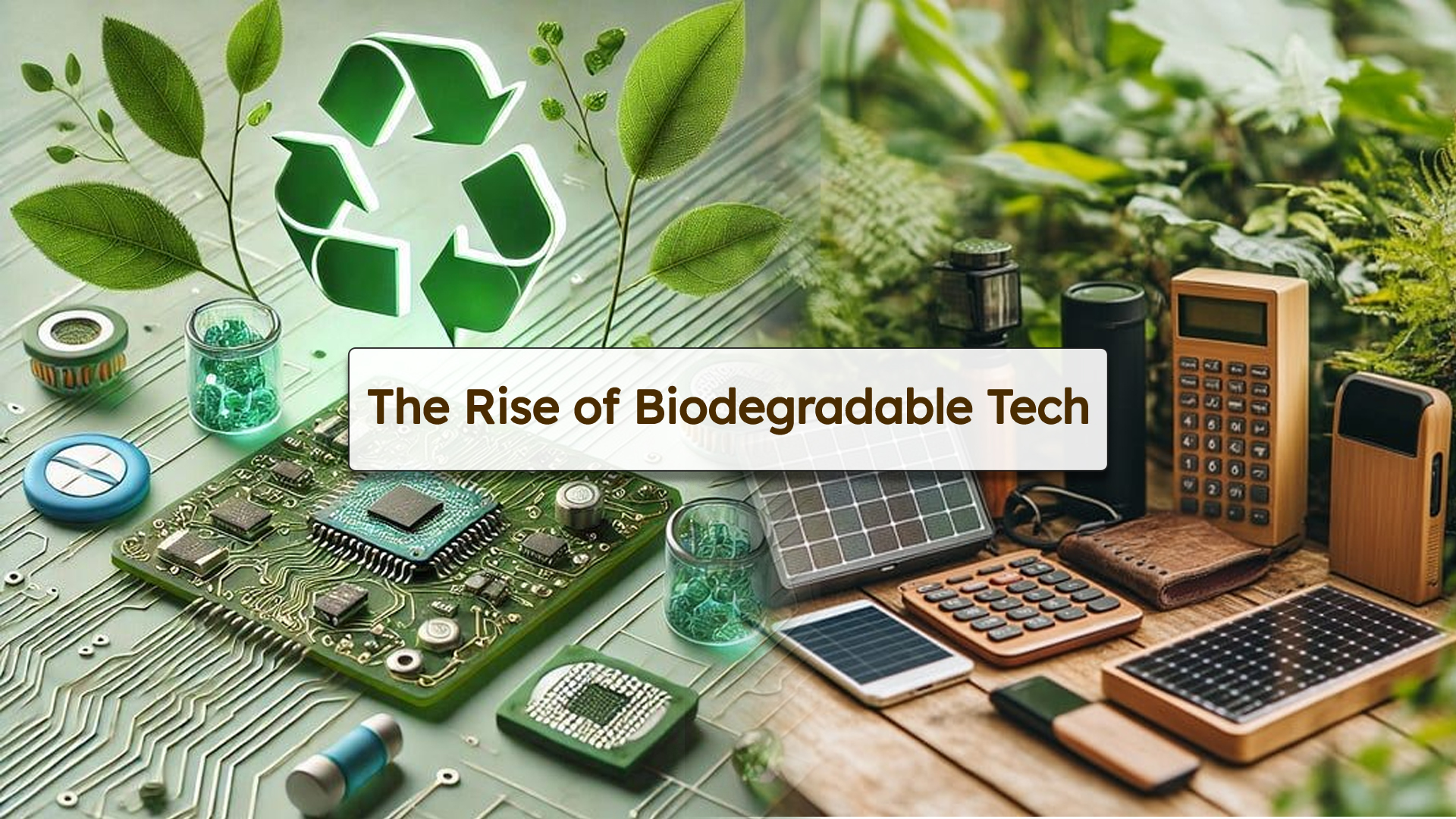As the world grapples with environmental challenges, technology is increasingly being called upon to play a pivotal role in sustainability. One of the most promising advancements in this area is biodegradable technology—innovations designed to minimize waste and reduce long-term ecological impact. From electronics to packaging, the rise of biodegradable tech is reshaping industries and fostering a greener planet.
Biodegradable Electronics
The rapid growth of electronic waste (e-waste) has raised serious concerns about pollution and resource depletion. To combat this, researchers and companies are developing biodegradable electronics made from natural materials like silk, paper, and bio-polymers. These eco-friendly devices decompose safely when disposed of, reducing toxic waste in landfills. Notable examples include biodegradable circuit boards and dissolvable sensors used in medical applications.
Sustainable Packaging Solutions
Single-use plastics have long been a major environmental concern. However, advancements in biodegradable packaging offer a sustainable alternative. Companies are now utilizing plant-based materials like cornstarch, mushroom mycelium, and seaweed to create packaging that decomposes naturally. These innovations are gaining traction in the food, retail, and e-commerce industries, significantly reducing plastic pollution.
Eco-Friendly Textiles
The fashion industry is notorious for its environmental impact, particularly due to synthetic fibers that contribute to microplastic pollution. Biodegradable textiles, made from materials like organic cotton, hemp, and even bioengineered silk, are paving the way for a more sustainable fashion sector. Innovations such as algae-based fabrics and biodegradable dyes further enhance the eco-friendliness of clothing.
Biodegradable Medical Devices
Healthcare technology is also embracing biodegradability to minimize medical waste. Biodegradable implants, sutures, and drug-delivery systems are being developed to break down naturally within the body after serving their purpose. This not only reduces waste but also eliminates the need for additional surgical procedures to remove medical devices.
Challenges and Future Prospects
While biodegradable tech presents exciting opportunities, challenges remain. Cost barriers, limited scalability, and durability concerns can hinder widespread adoption. However, ongoing research and growing consumer demand for sustainable products are driving advancements in the field. As technology progresses, biodegradable innovations are expected to become more accessible, efficient, and integrated into everyday life.
Conclusion
The rise of biodegradable technology marks a significant step toward a more sustainable future. By embracing these innovations, industries can reduce waste, conserve resources, and help combat environmental degradation. As research and investment continue, biodegradable tech will play an increasingly vital role in shaping a greener planet for generations to come.


